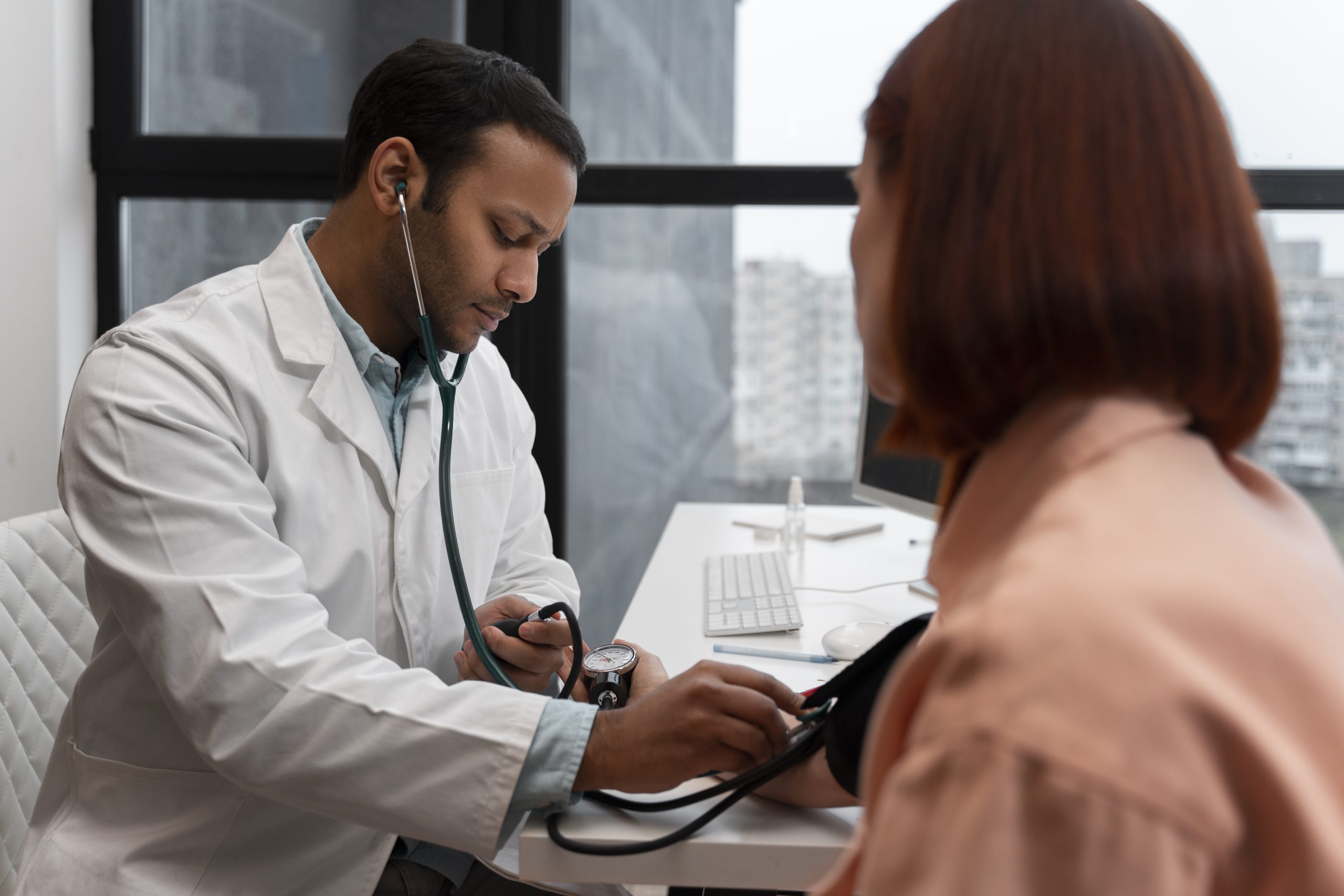
Professional medical service of Cardiology
Cardiology services focus on diagnosing, treating, and managing heart-related conditions to ensure optimal cardiovascular health. Professional cardiology care typically includes:
- Consultations
- Diagnostic Tests:
- Treatment Plans
- Interventional Procedures
- Preventive Care
- ECG (Electrocardiogram)
- Echocardiogram
- Stress Testing
- Cardiac MRI/CT Scans
- Lifestyle Counseling
Advantage Cardiology
Advantage Cardiology refers to the benefits and advancements in cardiology care that improve patient outcomes and experiences. Here are some key advantages:


Health Tips & Info
Here are some health tips and information tailored for maintaining optimal heart health, especially in the context of Advantage Cardiology
Daily Heart-Healthy Habits
Balanced Nutrition:
Focus on a diet rich in fruits, vegetables, whole grains, lean proteins, and healthy fats like those found in nuts and fish.
Limit salt, sugar, and saturated fats to reduce the risk of high blood pressure and cholesterol.
Regular Exercise:
Engage in at least 30 minutes of moderate aerobic activity (like walking, swimming, or cycling) most days of the week.
Include strength training exercises twice a week to improve overall cardiovascular health.
Stay Hydrated:
Drink plenty of water throughout the day to support circulation and overall body function.
Avoid Smoking and Limit Alcohol:
Smoking damages blood vessels and increases the risk of heart disease.
Moderate alcohol consumption, if any, to protect your heart.
Where Can I Go To Provide A Sample For Testing?
You can provide a sample for testing at various healthcare facilities, including: GP Practices: Many general practitioner (GP) clinics accept samples for testing. You can hand in your sample at the reception, and it will be sent to a laboratory for analysis Hospitals: Larger hospitals often have dedicated pathology or diagnostic departments where you can submit your sample. Specialized Testing Centers: Some centers focus on specific types of tests, such as stool or blood tests. For example, the Royal Brompton Hospital provides detailed instructions for stool sample collection and submission
What happens to my sample once I have provided it?
When you provide a sample for medical testing, it goes through the following steps: 1. Labeling and Tracking Your sample is securely labeled with your unique patient details, ensuring it is properly tracked and cannot be confused with others. 2. Transportation to the Laboratory Depending on where the sample is collected (clinic, hospital, or home), it is transported to a specialized laboratory, often in temperature-controlled conditions to preserve its integrity. 3. Processing and Analysis In the lab, your sample is processed and analyzed based on the type of test. For example: Blood Samples: Examined for cell counts, cholesterol levels, infections, or specific biomarkers. Tissue Samples: Checked under a microscope or tested for abnormalities, such as cancer. Urine/Stool Samples: Screened for infections, digestive issues, or other specific conditions.
What will laboratory testing cost me?
The cost of laboratory testing can vary depending on the type of test, the facility, and whether it’s done privately or through public healthcare. Here’s a general breakdown: Private Testing: Basic blood tests in private clinics in the UK can range from £50 to £200, depending on the complexity of the test. Specialized tests, such as allergy panels or genetic screenings, may cost between £300 and £700. NHS Testing: If you’re eligible for NHS services, many laboratory tests are free of charge as part of your healthcare coverage. Factors Affecting Cost: The type of test (e.g., blood, urine, imaging). The urgency of results (same-day results may cost more). Additional fees for consultations or sample collection.
Using Innovative Technology
Innovative technology is transforming industries and improving everyday life in remarkable ways. Here are some examples of how it’s being used: Healthcare AI Diagnostics: Artificial intelligence is aiding in early detection of diseases such as cancer and heart conditions with improved accuracy. Telemedicine: Virtual consultations make healthcare more accessible, especially for remote or underserved areas. Wearables: Devices like smartwatches monitor vital signs, such as heart rate and oxygen levels, in real time. Education Virtual Reality (VR): Immersive learning experiences allow students to explore topics interactively, such as history or anatomy. Personalized Learning: AI tools adapt educational content based on individual learning speeds and preferences. Environment and Sustainability Smart Grids: Technology manages energy distribution efficiently, reducing waste and enhancing sustainability. AI for Conservation: Algorithms analyze data to protect endangered species and monitor environmental changes. Everyday Life Smart Homes: IoT devices automate tasks such as lighting, security, and temperature control, enhancing convenience. E-commerce AI: Recommendations and chatbots improve online shopping experiences for users.

